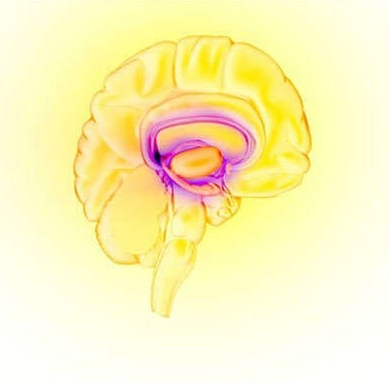Is Marijuana Addictive?
Yes, about 1 in 10 marijuana users will become addicted. For people who begin using younger than 18, that number rises to 1 in 6
The majority of pot smokers do not develop a marijuana addiction, but some smokers do develop all the symptoms of an actual addiction after chronic marijuana use.
Most marijuana users never come close to being addicted to weed. They do not lose control of its use; they generally use the amount they want to use and when they want to use it. When they use marijuana, they get the exact results they expect and intend to get.
The fact that most users never develop an addiction doesn't mean that it never happens. Some marijuana users will exhibit all the classic behaviors of someone who has an addiction.
The NIDA also reports that the higher potency of marijuana available today may be another factor in the rising number of people who develop a problem. Marijuana confiscated by law enforcement today contains an average of 9.6% of THC compared to 3.7% in weed confiscated in the 1990s.
Marijuana that is consumed in products that are made from marijuana extract can contain from 50% to 80% THC. Researchers are investigating if higher potency is the reason for an increase in emergency department visits by people testing positive for marijuana.
Some of the signs that someone might be addicted include:
- Unsuccessful efforts to quit using marijuana.
- Giving up important activities with friends and family in favor of using marijuana.
- Using marijuana even when it is known that causes problems fulfilling everyday jobs at home, school,or work.
People who are addicted to marijuana may also be at a higher risk of other negative consequences of using the drug, such as problems with attention, memory, and learning. Some people who are addicted need to smoke more and more marijuana to get the same high. It is also important to be aware that the amount of tetrahydrocannabinol (THC) in marijuana (i.e., marijuana potency or strength) has increased over the past few decades. The higher the THC content, the stronger the effects on the brain. Besides, some methods of using marijuana (e.g., dabbing, edibles) may deliver very high levels of THC to the user. Researchers do not yet know the full extent of the consequences when the body and brain (especially the developing brain) are exposed to high concentrations of THC or how recent increases in potency affect the risk of someone becoming addicted.

About Addiction Science-Understanding Drug Use and Addiction DrugFacts
Many people don't understand why or how other people become addicted to drugs. They may mistakenly think that those who use drugs lack moral principles or willpower and that they could stop their drug use simply by choosing to. In reality, drug addiction is a complex disease, and quitting usually takes more than good intentions or a strong will. Drugs change the brain in ways that make quitting hard, even for those who want to. Fortunately, researchers have found treatments that can help people recover from drug addiction and lead productive lives.

What Is drug addiction?
Addiction is a chronic disease characterized by drug seeking and use that is compulsive, or difficult to control, despite harmful consequences. The initial decision to take drugs is voluntary for most people, but repeated drug use can lead to brain changes that challenge an addicted person’s self-control and interfere with their ability to resist intense urges to take drugs. These brain changes can be persistent, which is why drug addiction is considered a "relapsing" disease—people in recovery from drug use disorders are at increased risk for returning to drug use even after years of not taking the drug.
It's common for a person to relapse, but relapse doesn't mean that treatment doesn’t work. As with other chronic health conditions, treatment should be ongoing and should be adjusted based on how the patient responds. Treatment plans need to be reviewed often and modified to fit the patient’s changing needs.

What happens to the brain when a person takes drugs?
Most drugs affect the brain's "reward circuit," causing euphoria as well as flooding it with the chemical messenger dopamine. A properly functioning reward system motivates a person to repeat behaviors needed to thrive, such as eating and spending time with loved ones. Surges of dopamine in the reward circuit cause the reinforcement of pleasurable but unhealthy behaviors like taking drugs, leading people to repeat the behavior again and again.
As a person continues to use drugs, the brain adapts by reducing the ability of cells in the reward circuit to respond to it. This reduces the high that the person feels compared to the high they felt when first taking the drug—an effect known as tolerance. They might take more of the drug to try and achieve the same high. These brain adaptations often lead to the person becoming less and less able to derive pleasure from other things they once enjoyed, like food, sex, or social activities.
Long-term use also causes changes in other brain chemical systems and circuits as well, affecting functions that include:
- Learning
- attention
- judgment
- decision-making
- stress
- memory
- behavior
Despite being aware of these harmful outcomes, many people who use drugs continue to take them, which is the nature of addiction.

Why do some people become addicted to drugs while others don't?
No one factor can predict if a person will become addicted to drugs. A combination of factors influences risk for addiction. The more risk factors a person has, the greater the chance that taking drugs can lead to addiction. For example:
- The genes that people are born with account for about half of a person's risk for addiction. Gender, ethnicity, and the presence of other mental disorders may also influence risk for drug use and addiction.
- A person’s environment includes many different influences, from family and friends to economic status and general quality of life. Factors such as peer pressure, physical and sexual abuse, early exposure to drugs, stress, and parental guidance can greatly affect a person’s likelihood of drug use and addiction.
- Genetic and environmental factors interact with critical developmental stages in a person’s life to affect addiction risk. Although taking drugs at any age can lead to addiction, the earlier that drug use begins, the more likely it will progress to addiction. This is particularly problematic for teens. Because areas in their brains that control decision-making, judgment, and self-control are still developing, teens may be especially prone to risky behaviors, including trying drugs.
Withdrawal Symptoms
Today's research shows that tolerance does develop to THC and that withdrawal symptoms do occur in some users. Studies of chronic marijuana users who quit smoking show that some experience these withdrawal symptoms:
- Anxiety and insomnia
- Loss of appetite
- Excessive salivation
- Decreased pulse
- Irritability
- Increased mood swings
- Increase in aggressive behavior
Researchers believe that because today's pot is much more potent it makes it more likely to develop physiologic dependence in some users.
Even if not physically or chemically dependent on marijuana, some users will at the very least develop a psychological dependence upon the drug.

Can drug addiction be cured or prevented?
As with most other chronic diseases, such as diabetes, asthma, or heart disease, treatment for drug addiction generally isn’t a cure. However, addiction is treatable and can be successfully managed. People who are recovering from an addiction will be at risk for relapse for years and possibly for their whole lives. Research shows that combining addiction treatment medicines with behavioral therapy ensures the best chance of success for most patients. Treatment approaches tailored to each patient’s drug use patterns and any co-occurring medical, mental, and social problems can lead to continued recovery.
More good news is that drug use and addiction are preventable. Results from NIDA-funded research have shown that prevention programs involving families, schools, communities, and the media are effective for preventing or reducing drug use and addiction. Although personal events and cultural factors affect drug use trends, when young people view drug use as harmful, they tend to decrease their drug taking. Therefore, education and outreach are key in helping people understand the possible risks of drug use. Teachers, parents, and health care providers have crucial roles in educating young people and preventing drug use and addiction.
|
|
ESF8800 880W UV+IR Spectrum Tunable Timer Dimmable LCD Display Full Spectrum Foldable LED Grow Lights For Indoor Plants. |
|
|
Eagle Star LED ESM7600 760W Full Spectrum Multi-Bar Best Grow Lights For Indoor Plants. |
Recommended Blogs for you:
How to Grow Cannabis? Where Is Cannabis Legal?
Can any led light be used as a grow light?
HOW TO CHOOSE THE BEST LED GROW LIGHTS FOR INDOOR PLANTS ?
Where to buy a Super High-yield Cannabis Plants Grow Light?












